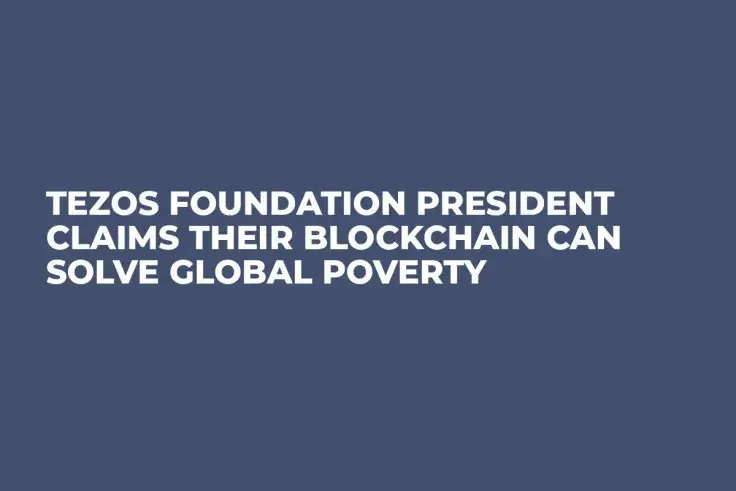
Tezos is finally recovering after damaging infighting, and now the upstart is setting a new ambitious goal — fighting global poverty. In order to translate their endeavor into reality, they need to bring on board regulators and, of course, strengthen the community.
Solving the global crisis
Blockchain is widely considered to be the technology that could rival the Internet given that there are plenty of use cases that could potentially reshape many industries. During an interview with Swissinfo, Ryan Jesperson, who spearheads the Zug-based Tezos Foundation, claims that the project is willing to appear at the forefront of the future socio-economic revolution that will be achieved with the help of the disruptive technology. Jesperson emphasizes that Tezos could be a boon to people who live in poverty-stricken countries that are plagued with government obfuscation, corruption, and undeveloped infrastructure.

Joining the winning team
Given the steep fall of Bitcoin, Blockchain’s number one use case, some naysayers scoff at the possibility that Blockchain could solve global poverty. However, Jesperson is certain that the technology, which allows avoiding the influence of centralized authorities, could be a major slap in the face for corrupted officials. At this point, one of the main challenges is to convince the general public that Blockchain is more than a humbug, and it’s going to impact the social and economic aspects of everyone’s life.
The idea, not the bling
The future of Tezos, as Jesperson puts it, mainly depends on its community. Unfortunately, the speculative nature of cryptocurrency investments remains one of the main hindrances to the project’s future growth. In plain words, many saw Tezos as a get-rich-quick opportunity without actually contributing to the ecosystem (only 450 community members are currently baking the ‘Tezzie’ tokens that are required to keep the project going).
Four months after its record-breaking ICO, Tezos was hit with four class-action lawsuits, and now it’s up for the US SEC to decide whether the sold tokens were undeclared securities.

 Alex Dovbnya
Alex Dovbnya Tomiwabold Olajide
Tomiwabold Olajide Caroline Amosun
Caroline Amosun